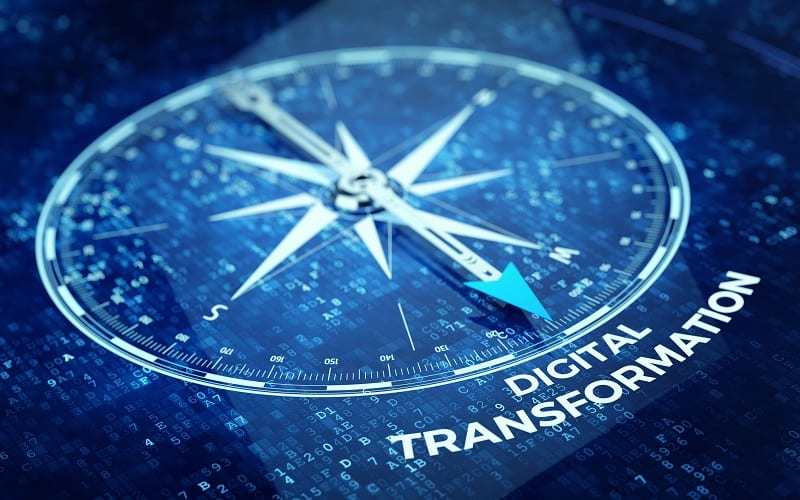Natty Gur, Founder of Galaxies, a management consulting organization based in the United States, participates in Risk Roundup to discuss “How Businesses Are Adjusting to COVID-19 Complexities”.
How Are Businesses Adjusting To COVID-19 Complexities?
The COVID-19 pandemic is sweeping the world. The resulting growing complexity has become a new constant in our individual and collective lives. While the blame game is ongoing, the reality remains that we need to protect ourselves, our businesses, industries, and nations from what has hit us and continues to strike us.
As we begin to evaluate the impact at all levels, it is not only the individuals that are visibly impacted and should be a focus; the challenges seem to be getting more complicated for entities across nations: its governments, industries, organizations, and academia as well. And these growing complexities are mainly due to the interconnectedness and interdependencies of our systems at all levels. So, as the risks of cascading failures begin to become a reality, it is essential to evaluate how businesses are adjusting to the growing COVID-19 complexities.
The Complexity of COVID-19 System
When everyone and everything is connected across nations, the impact of the COVID-19 pandemic on the interacting systems and subsystems is very complicated. From the healthcare system, the financial system, the transportation system, the education system, the communications system, the political system, the legal system, and so on, each system is made of numerous organizations that are further made of many individuals. All these interconnected layers of systems and subsystems are in itself complex and make the systems at the national and global levels more complex. It is, therefore, crucial to understand how all these interacting systems work in parallel on time to address the complex systemic issues that each nation faces when events like pandemics hit the countries.
It is essential to understand that the entire human society, nations, and the COVID-19 pandemic are all complex adaptive systems. What this means is that everything is interconnected and interdependent, and everyone and everything in the respective system needs to adapt effectively to their ever-changing environments. Since nations are built on complex systems and COVID-19 invasion in humans is in itself complex, there is a need to lean on not only the experiences of the previous pandemics but also in how the past persistent problems that have long plagued our nations and society were solved.
Since managing the health impact of the COVID-19 pandemic is in itself an enormous challenge, it is vital to understand how businesses are responding to the complexity of COVID-19 impact to its most valuable assets, the human resources. Furthermore, it is crucial to evaluate how businesses are adapting to the growing supply chain issues, financial impact, survival, and security, and more.
Adaptation is Key to COVID 19 Complexities
The impact of COVID-19 complexities that give rise to system-wide challenges seems to be complex, forceful, and multidimensional. In this period of high uncertainty, businesses need to perhaps prioritize adaptability over efficiency, survival overgrowth, and experimentation over mandates and focus on facilitating innovation and the free flow of information and resources to manage the complexity brought on by the COVID-19 pandemic.
That brings us to some important questions:
- What is the key to COVID-19 complexities? Is it an adaptation?
- If it is, what does it mean for businesses to focus on adaptation as they deal with the impact of COVID-19?
It is essential to understand that there is a tradeoff between adaptability and efficiency. So, how can businesses adapt to the impact of COVID-19 while trying to maintain efficiency, competitiveness, survival, and security?
To successfully adapt to a variety of COVID-19 challenges, businesses need to strategize a range of responses that helps them adapt to the impact. It is a well-known fact that when problems are few, centralized systems work well. However, when the challenges are complex and ever-changing, like with COVID-19, distributed systems perhaps will work better in uncertain and dynamic environments.
What does this mean for businesses today?
What it means is that there is a connection between all systems and the flow of information and resources between the entire supply chain. Because information and resources are widely distributed across the whole business supply chain, they can adapt more quickly when the information flow between all the connecting nodes is secure and readily accessible. Digitization and digitalization is no longer an option. Just as the nation’s collective intelligence is most significant when there are lots of specialized subsystems with secure connections within and among them, businesses are strong when all its interconnected points are safe and secure, visible, and traceable, and whether there is a free flow of information available.
Since strong and secure connections are the lifeblood of collective intelligence and adaptation, if the information flow breaks for businesses, it has cascading failures. So, the question is:
- What can businesses do for the coming tomorrow to prevent any such failure?
- How can businesses help weaken the impact of COVID 19?
- What are the best ways to accomplish adapting to complex objectives?
- What are the most cost-effective ways to protect the economy from cascading failures?
The COVID-19 pandemic presents society with conflicting prospects for cascading failures and success. If organizations do nothing, there will be cascading failures across the economy. However, if they strategize well, we will see a great transformation.
Do-it-yourself to Decentralized Response
It seems that we cannot solve a complex problem like COVID-19 with a silo and a solely centralized response. It is time to evaluate whether society or businesses should strictly follow centralized guidance or allow collective intelligence and contribution to better face the impact of COVID 19.
Just as it would be a mistake to put all of the nation’s resources behind a single preventive or therapeutic treatment for COVID 19, it would also be a mistake to impose a centralized, one-size-fits-all strategy and policies for facing the impact of COVID 19 by businesses. The reason is, if the business policies and direction are mandated and prove to be ineffective, they will make matters worse. It is not just the failure of businesses, everyone involved suffers and further triggers cascading collapse for nations systems. So, what should be the approach?
When businesses are faced with a complex and uncertain environment, it is time to focus on decentralized, adaptive, and distributed responses. That means we should perhaps let everyone try a different approach so we can quickly discover the best ones and implement them more broadly to protect not only our businesses, our nations, but the entire human civilization. That means we should allow more do-it-yourselfers to come up with creative ideas to solve the complex challenge brought on by the COVID 19 pandemic.
By promoting do it yourself movement to decentralization, we will not only be able to adapt to the complexities brought on by the COVID-19 pandemic; but we will also be able to weather the economic and national security challenges. It is time we adapt and move forward!
For more, please watch the Risk Roundup Webcast or hear the Risk Roundup Podcast
About the Guest
Natty Gur is the founder of Galaxies. He is a thought leader and practitioner of better ways to organize and motivate people while managing organizations. Natty is a keen believer in self-managed teams based on non-deterministic management principles. He is a supporter of decentralized, distributed, and autonomous organizations. Natty has 17 years of experience running different sizes of organizations and groups. He serves as an executive leader of technological organizations and provides value by focusing on business and harnessing emerging technologies to contribute to business and humanity. Natty is experienced in developing and executing Enterprise Architecture programs in a variety of industries. He is an amateur photographer with a passion for nature and landscaping and a devoted practitioner of daily meditation to be calmer, yet more productive.
About the Host of Risk Roundup
Jayshree Pandya (née Bhatt), Ph.D., is a leading expert at the intersection of science, technology, and security and is the Founder and Chief Executive Officer of Risk Group LLC. She has been involved in a wide range of research, spanning security of and from science and technology domains. Her work is currently focused on understanding how converging technologies and their interconnectivity across cyberspace, aquaspace, geospace, and space (CAGS), as well as individuals and entities across nations: their governments, industries, organizations, and academia (NGIOA), create survival, security, and sustainability risks. This research is pursued to provide strategic security solutions for the future of humanity. From the National Science Foundation to organizations from across the United States, Europe, and Asia, Dr. Pandya is an invited speaker on emerging technologies, technology transformation, digital disruption, and strategic security risks. Her work has contributed to more than 100 publications in the areas of science and commerce. She is the author of the books, Geopolitics of Cybersecurity and The Global Age.
About Risk Roundup
Risk Roundup, a global initiative launched by Risk Group, is a security risk reporting for risks emerging from existing and emerging technologies, technology convergence, and transformation happening across cyberspace, aquaspace, geospace, and space. Risk Roundup is released in both audio (Podcast) and video (Webcast) format. It is available for subscription at (Risk Group Website, iTunes, Google Play, Stitcher Radio, Android, and Risk Group Professional Social Media).
About Risk Group
Risk Group is a Strategic Security Risk Research Platform and Community. Risk Group’s Strategic Security Community and Ecosystem is the first and only cross-disciplinary and collective community that is made of top scientists, security professionals, thought leaders, entrepreneurs, philanthropists, policymakers, and academic institutions from across nations collaborating to research, review, rate, and report strategic security risks to protect the future of humanity.
Copyright Risk Group LLC. All Rights Reserved





 International Inquiry on COVID-19: Does international law hold any answers?
International Inquiry on COVID-19: Does international law hold any answers?